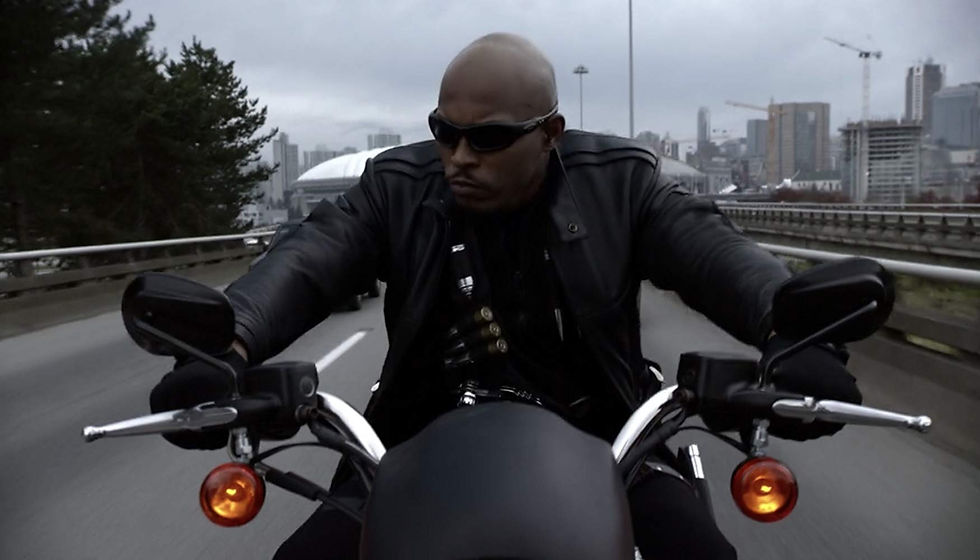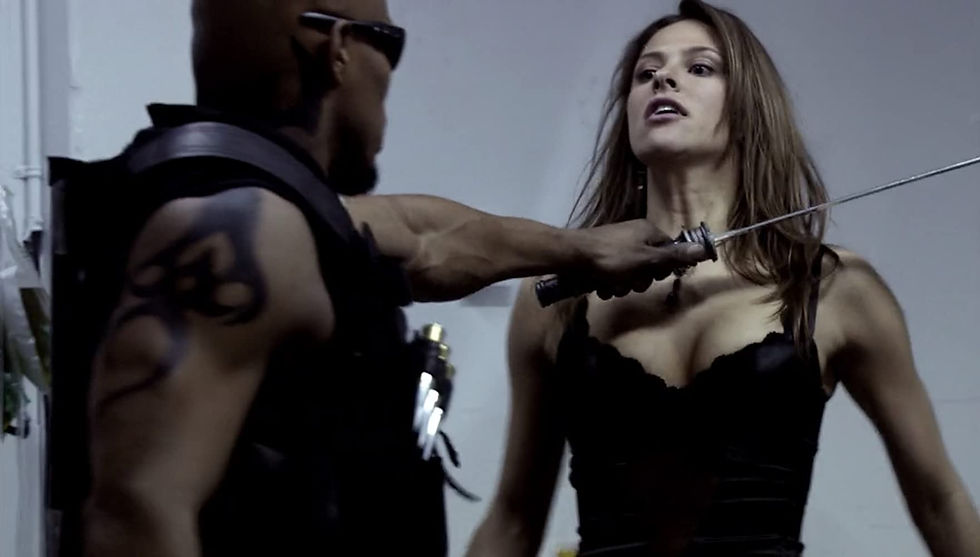Blade: A One Season Attempt at Recreating the Movies
- Mickey Farmer
- Mar 20, 2020
- 3 min read
Updated: Sep 25, 2020

Did you love the Blade movies? If so, then you may kind of like the Blade series! Sort of. This one season show picked up the vampire hunter’s story where the movies left off.
Blade is the vampire hunter, so extremely cool that he almost literally drips swag, who was made popular and famous by the Wesley Snipes movies in the 90’s. Many attribute the green-lighting of the MCU to 2000’s X-Men, but that movie was clearly influenced by the leather clad Snipes and his portrayal of the one-liner spouting bane of all vampires. So, if I remember my Pythagorean theorem correctly, if A = B and B = C, then A = C. So, blammo, Blade helped launch Marvel into the movies.
The show, like the movies before it, follows Blade in his adventures as he tracks down and exterminates vampires. While Blade is part vampire himself, thanks to his mother getting turned while pregnant with him, he still retains enough humanity to want to rid the Earth of vampires. Another difference that separates him from the vamps is that he can still go out and about in the sun, leading the vampires call him “Day Walker.” He does have a craving for human blood though, thanks to his vampire half. So, he staves off his bloodlust with a serum but struggles with his needs like an alcoholic struggles with sobriety.

Sticky Fingaz plays the titular role. Unfortunately, he plays as if he’s trying to be Wesley Snipes. I think this was a mistake. Every movement, the line delivery, all that he did, it was all a Wesley impersonation. In the upcoming MCU version of Blade, I hope Mahershala Ali doesn’t fall victim to this same mistake. Other than trying to embody Snipes, Fingaz did a decent job as Blade.
The show tried to incorporate a new ongoing storyline along with new characters. Specifically, the show prominently added Jill Wagner in the role of ex-soldier, Krista Starr. Starr returned home from military service to find her brother had been killed. Investigating his death, she discovers he was a human helper, or familiar, to a powerful vampire named Marcus. Marcus, the lead villain of the season, turns Krista into a vampire, intent on adding her to his den of vamps.
Blade, of course, intervenes and gives her the same serum that holds back his own bloodlust. Blade’s goal was to use her as an undercover operative against Marcus and the rest of his vampires. The rest of the season plays out like a supernatural Donnie Brasco with Krista trying to maintain her cover while Marcus takes a seductive liking to her.

Marcus’ goal, during the season, is to create a serum of his own that can be used to destroy pure blood vampires. Creating factions within the world of vampires, Marcus was once human and was turned into a vampire. His turned kind of vampires do not like the rules of the pure bloods. Naturally, he wants them all dead so he and his kind can rule.
The show had a fun ongoing story that blended nicely into the realm of Blade. Starting in 2006, it rode into TV on the wave of the popularity of those early superhero movies. The ongoing plot element fit in nicely with that burgeoning tendency from shows like Lost, 24, and Prison Break.
On paper, Blade the Series sounds like it would’ve worked. Known properties. Superheroes. Vampires, especially sexy ones in the vein of Interview with a Vampire. The writer was David S. Goyer, aka the writer of the Dark Knight trilogy! However, the show didn’t work. Only 12 episodes aired. No season 2 was ordered. While the acting was mostly good, the production value of the show was not comparable to shows on channels like FX or AMC. The result was that the show often looked cheap or “B grade”.

Spike TV was a fledgling cable network at that time. It has since ended and been replaced by Paramount. Blade clearly didn’t have the budget that Paramount’s current flagship show, Yellowstone, has.
It wasn’t only the production value though, I think, that did this show in. While the MCU launch made superheroes more popular than ever, that popularity was thanks to the injection of new characters. Blade, on the other hand, had already seen a massive drop in the success rate of his movies by the time Blade: Trinity came out. So, it seemed people had seen enough of the character by the time the series started.
While the show was decent, low budgets and over saturation of the character doomed it to failure. That doesn’t mean the show isn’t worth the watch though. Just know that the show’s production value doesn’t nearly match that of the movies. If you go in with that mindset and you liked the movies, you’d likely enjoy the show.
Be sure to check out our other Movie and TV Reviews.









Comments